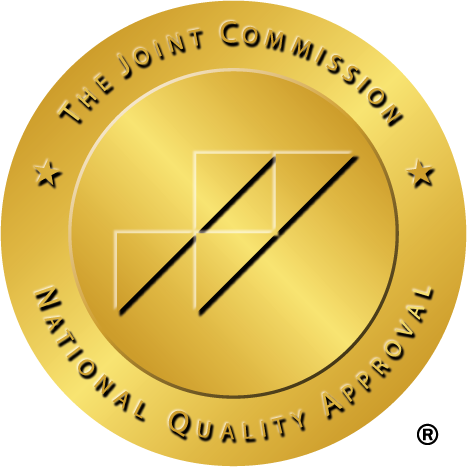KEY POINTS
- Outpatient mental health treatment allows for flexible, cost-effective care while maintaining daily routines.
- Outpatient programs offer various types of therapy and support services according to an individual care plan.
- An outpatient setting is ideal for individuals with manageable symptoms and strong support systems.
If you or a loved one is struggling with mental health, an outpatient psychiatric treatment program may be ideal. This flexible therapeutic environment offers the same quality of treatment as an inpatient facility, but it offers more independence and freedom to manage your treatment alongside the responsibilities of everyday life.
Find out more about outpatient psychiatric treatment, its types and benefits, and how to find the right care for your needs.
SPEAK WITH AN ADMISSIONS COUNSELOR TODAY
What Is Outpatient Psychiatric Treatment?
Outpatient treatment, or non-residential treatment, is a flexible treatment setting that involves structured time in treatment sessions during the day and evening. While the schedule and frequency can vary, people attend sessions and return home to tend to their responsibilities and sleep in their own beds.
For people with stable conditions and support, outpatient can be a good choice to balance treatment with everyday life, including going to work or school, caring for children or family members, or enjoying leisure time.
Who Is Outpatient Psychiatric Treatment For?
Outpatient psychiatric treatment can be ideal if:
- You have a mild to moderate condition that doesn’t involve severe symptoms or are in a stabilization phase of recovery.
- You require flexibility for your treatment. If you have a daily routine to maintain, including work, school, or family obligations, outpatient treatment offers more free time.
- Your condition is stable, or you’ve already undergone intensive treatment and are transitioning to a less intensive level of care.
- You’re looking for continued support and therapy to manage your mental health in a real-world setting.
What Conditions Can Be Treated with Outpatient Treatment?
Outpatient treatment is accessible and effective for many mental health conditions, including:
- Anxiety disorders like anxiety, panic, and social anxiety. Interventions like cognitive behavioral therapy may be used to address negative thought patterns and teach coping skills.[1]
- Mood disorders like bipolar disorder or persistent depressive disorder Therapeutic interventions like cognitive behavioral therapy can improve communication and address unhelpful thought patterns and behaviors that contribute to these conditions.[2]
- Personality disorders like borderline personality disorder. Outpatient treatment with individual therapy, behavioral therapy, and medication management can help with personality disorders to learn healthy coping skills and improve relationships.
- Substance use disorders. Interventions that are used for substance use disorders, such as behavioral therapies, motivational interviewing, contingency management, and medication-assisted treatment (MAT), can be used to cope with triggers and begin recovery.[3]
- Post-traumatic stress disorder (PTSD): PTSD can be addressed with outpatient treatment using interventions like eye movement desensitization and reprocessing (EMDR), which help to process traumatic memories and confront triggers.[4]
- Obsessive-compulsive disorder (OCD). Interventions like behavioral therapies can help with obsessive thoughts and compulsive behaviors that are common with OCD.
- Eating disorders. Outpatient mental health treatment can treat eating disorders using behavioral therapies to learn healthier habits and gain support.
Benefits of Outpatient Mental Health Treatment
There are many benefits of outpatient mental health treatment, including:
- Flexibility: You can attend sessions and receive treatment in outpatient while managing your daily responsibilities, such as work or family life.
- Cost-effectiveness: Outpatient care is often less expensive than inpatient treatment because it doesn’t involve 24/7 care.
- Independence: With outpatient treatment, you can maintain your autonomy and apply therapeutic strategies to your everyday life for practical learning and progress.
- Reduced life disruption: Outpatient treatment allows you to continue your normal routine, which can be less disruptive than full-time hospitalization.
Types of Outpatient Mental Health Treatment
Outpatient mental health treatment offers a few levels of care, combining individual therapy, group therapy, family therapy, and medication management. The levels of care for outpatient mental health treatment include:
- Outpatient treatment: This standard treatment often involves therapy sessions that take place at a treatment center or facility. Therapy sessions are on a set schedule, allowing you to work around your work, school, or family responsibilities. Depending on your personalized care plan, treatment may take place a few times a week for several months.
- Intensive outpatient programs (IOP): IOP involves 3-5 hours of treatment sessions that take place several days a week. IOPs have more structure and support than standard outpatient programs, but they still allow some flexibility to tend to your responsibilities. The length of IOP can vary, though 90 days is often the minimum.
- Partial hospitalization programs (PHP): PHP involves 6 or more hours of treatment per day up to 7 days a week. This program is highly structured and supervised, giving you the most intensive level of treatment outside of full residential care. PHP may be used as a step-down after an inpatient stay.
Outpatient Treatment vs. Inpatient Treatment
Outpatient and inpatient treatments differ in their level of intensity, supervision, and care.
Inpatient treatment offers 24/7 hospitalization and support for severe conditions that involve a lot of risk, such as suicidal ideation, psychosis, or substance use disorders. Often, inpatient treatment includes medication management and round-the-clock supervision.
Outpatient treatment allows you to live at home during your treatment, but you attend sessions at the facility according to your care plan. The session frequency and duration depend on your individual needs but may include structured daily treatments, individual therapy, and holistic therapies. Outpatient programs are quite flexible for people who don’t need 24/7 supervision and want to balance their responsibilities with mental health treatment.
How Does Outpatient Mental Health Treatment Work?
The progress for outpatient mental health treatment can vary, but it generally includes:
- Assessment: An initial evaluation by a mental health professional to understand your conditions, symptoms, and treatment goals.
- Treatment planning: The development of a personalized treatment plan that outlines therapy goals, techniques, and frequency.
- Therapy sessions: Regular sessions with therapists or counselors that may include individual, group, or family therapy.
- Monitoring: Ongoing assessment of your progress with adjustments to the treatment plan to address your needs.
- Aftercare: Continued support and follow-up sessions to ensure you’re progressing and address any issues.
What Services Are Available in an Outpatient Setting?
Outpatient settings provide diverse treatment options. Some of the therapies may include:
- Therapy and counseling, such as psychodynamic therapy and cognitive behavioral therapy.
- Medication management, including regular consultations with a psychiatrist for medication prescriptions and monitoring.
- Support groups with peers or a professional facilitator. Groups may be focused on overall support or specific problems.
- Educational programs that build coping strategies, mental health education, and skill building.
How to Find Outpatient Mental Health Treatment
If outpatient mental health treatment seems like the right choice for you, here are some considerations to find the right fit:
- Consult healthcare providers: Speak with your primary care physician or a mental health professional for recommendations.
- Research local facilities: Look for mental health facilities that offer outpatient care in your area.
- Check insurance coverage: Ensure that the treatment options are covered by your insurance plan and that you understand your financial responsibilities.
- Evaluate credentials: Review the qualifications and reputation of the therapists or treatment centers to ensure they meet the high standards of care.
- Tour facilities: Schedule tours to meet the staff, see the facility, and discuss the treatment approach and services.
SPEAK WITH AN ADMISSIONS COUNSELOR TODAY
Related Topics
Asked Questions About Outpatient Mental Health Treatment
Sources
[1] Kaczkurkin, A. N., & Foa, E. B. (2015, September). Cognitive-behavioral therapy for anxiety disorders: An update on the empirical evidence. Dialogues in clinical neuroscience. Retrieved from https://www.ncbi.nlm.nih.gov/pmc/articles/PMC4610618/ on 2024, August 26.
[2] Driessen, E., & Hollon, S. D. (2010, September). Cognitive behavioral therapy for mood disorders: Efficacy, moderators and mediators. The Psychiatric clinics of North America. Retrieved from https://www.ncbi.nlm.nih.gov/pmc/articles/PMC2933381/ on 2024, August 26.
[3] Jhanjee, S. (2014, April). Evidence based psychosocial interventions in substance use. Indian journal of psychological medicine. Retrieved from https://www.ncbi.nlm.nih.gov/pmc/articles/PMC4031575/ on 2024, August 26.
[4] American Psychological Association. (n.d.). What is EMDR therapy and why is it used to treat PTSD?. American Psychological Association. Retrieved from https://www.apa.org/topics/psychotherapy/emdr-therapy-ptsd on 2024, August 26.



